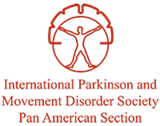Scientific Program
Delve into the latest advancements, discoveries, and trends across the field with leaders from your region.
Scientific Session Types
Plenary Sessions
An overview of the latest research findings relating to topics of broad interest in Movement Disorders.
Parallel Sessions
In-depth summaries of new clinical and research findings, treatment options, and future strategies.
Skills Workshops
Practical illustrations of techniques through video examples and equipment demonstrations.
Video Sessions
Video demonstrations that focus on the phenomenology covering the many different kinds of movement disorders.
Poster Sessions
Authors will be present during scheduled poster sessions to explain their work and answer questions.
Guided Poster Tours
Guided Poster Tours give delegates an opportunity to hear discussion on a select group of high-scoring abstracts dealing with defined topics.
Sponsored Symposia
Company-based information sessions providing delegates with non-CME educational opportunities to learn the latest in therapeutics and / or diagnostics.
In addition to the accredited program, you can join a number of other events during PAS Congress:
Accreditation Information
Target Audience
Clinicians, researchers, post-doctoral fellows, medical residents, medical students, allied health professionals with an interest in current clinical trends and approaches for diagnosis and treatment of movement disorders.
Learning Objectives
- Identify the pathophysiology and microbiology of Parkinson’s disease and other movement disorders.
- Appraise diagnostic approaches for management of Parkinson’s disease and other movement disorders.
- Evaluate pharmacological and non-pharmacological treatment options available for Parkinson’s disease and other movement disorders.
Accreditation Statement
This activity has been planned and implemented in accordance with the accreditation requirements and policies of the Accreditation Council for Continuing Medical Education (ACCME). The International Parkinson and Movement Disorder Society is accredited by the ACCME to provide continuing medical education for physicians.
Credit Designation Statement
The International Parkinson and Movement Disorder Society designates this education activity for a maximum of 17.5 AMA PRA Category 1 Credits™. Physicians should claim only credit commensurate with the extent of their participation in the activity.
Faculty Disclosures
All individuals in control of content for this activity are required to disclose all financial relationships with ineligible companies (as defined by the ACCME) over the last 24 months. Disclosure information is available on the PAS Congress website. All relevant financial relationships have been mitigated in advance of this program.
View faculty disclosure information.
Satisfactory Completion
Your chosen sessions must be attended in their entirety. Partial credit of individual sessions is not available. If you are seeking continuing education credit for a specialty not listed in the Accreditation Statement, it is your responsibility to contact your licensing/certification board to determine course eligibility for your board requirement.
Content Validity Statement
All recommendations involving clinical medicine in MDS activities are based on evidence that is accepted within the profession of medicine as adequate justification for their indications and contraindications in the case of patients. All scientific research referred to, reported or used in CME in support or justification of a patient care recommendations conforms to the generally accepted standards of experimental design, data collection and analysis. Activities that promote recommendations, treatment or manners of practicing medicine not within the definition of CME or are knowing to have risks or dangers that outweigh the benefits or are knowing to be ineffective in the treatment of patients do not constitute valid CME.

